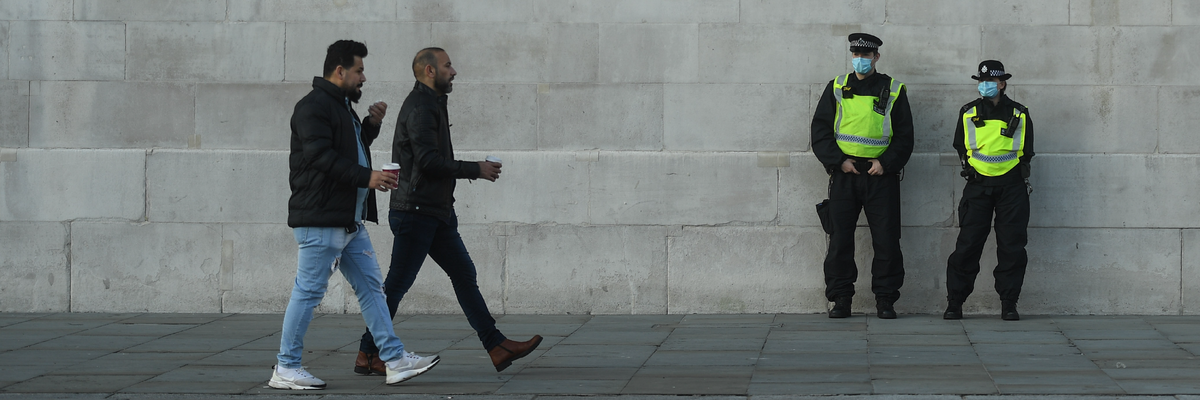Britons want the police to dedicate resources to ensuring shoppers wear masks – and half say stopping vehicles to make sure people don’t travel too far is important too
No lockdown would be complete without news stories of overzealous police officers fining walkers that they deem to have wandered too far, stopping vehicles, or, as we saw in spring, cracking down on easter egg sales.
New YouGov data shows that Britons mostly think it’s important that police dedicate resources to enforcing lockdown rules. Nearly everyone (92%) says it’s essential that officers make sure arrivals from abroad quarantine. Previous reports suggest that up until recently they have done little to fine those not self-isolating after travel or tracking down travellers giving false quarantine addresses.
Fining people at parties with more than 15 attendees is likewise universally popular at 88%, while three quarters (75%) say police should also focus on fining those celebrating in smaller numbers.
Police in England earlier this month said they will not enforce mask-wearing in supermarkets because it’s “impossible” and diverts limited resources away from other matters such as domestic violence. But four in five Britons (79%) say they should be checking whether shoppers and people on public transport are wearing masks.
The public are split on the benefit of stopping vehicles to ensure drivers are staying close to where they live. Half (52%) believe it’s important, while just ofter two fifths (44%) do not.
Meanwhile, only a third (34% in each instance) say it’s imperative that officers stop pedestrians to ask if they’ve left the house for an approved purpose, or make sure people who exercise are not too far from home.
Older people generally feel more convinced that the police should spend resources on the tasks we asked about. For example, nearly half of people aged 65+ (47%) want officers to make sure those who are out exercising stay local, compared with only 15% of Britons aged 18 to 24.
Likewise, two in five older people (42%) say it’s important that the police stop pedestrians to make sure they’ve left the house for an approved purpose, while only a fifth of 18- to 24-year-olds (20%) agree.







